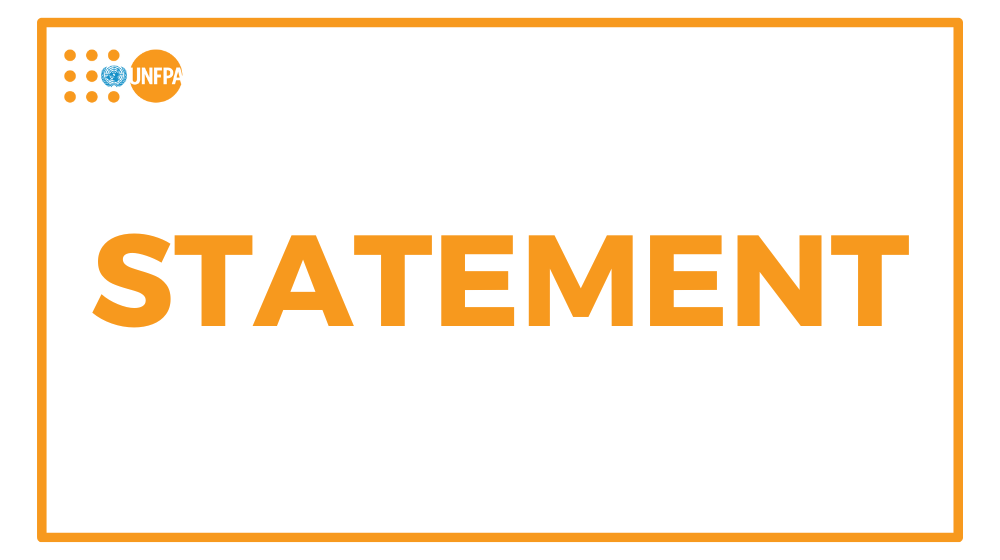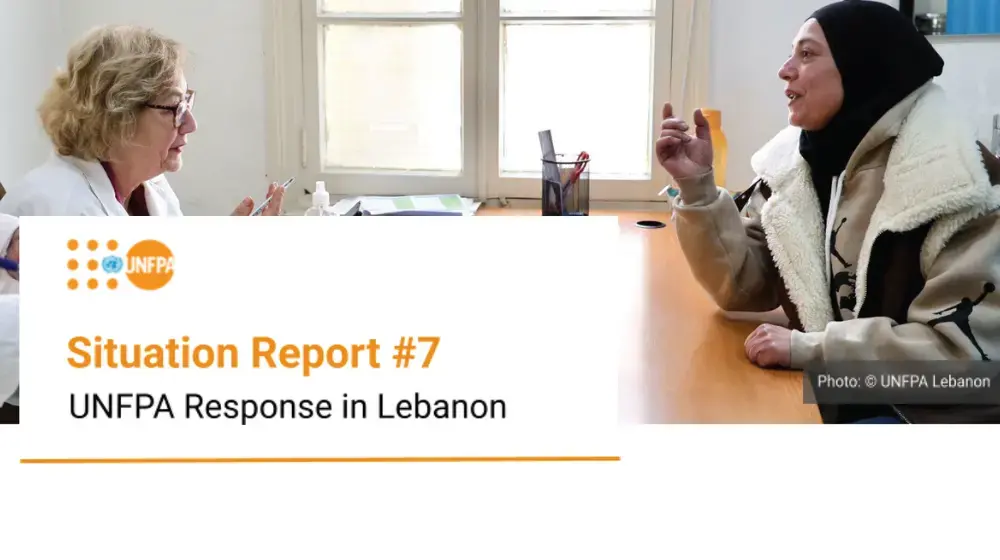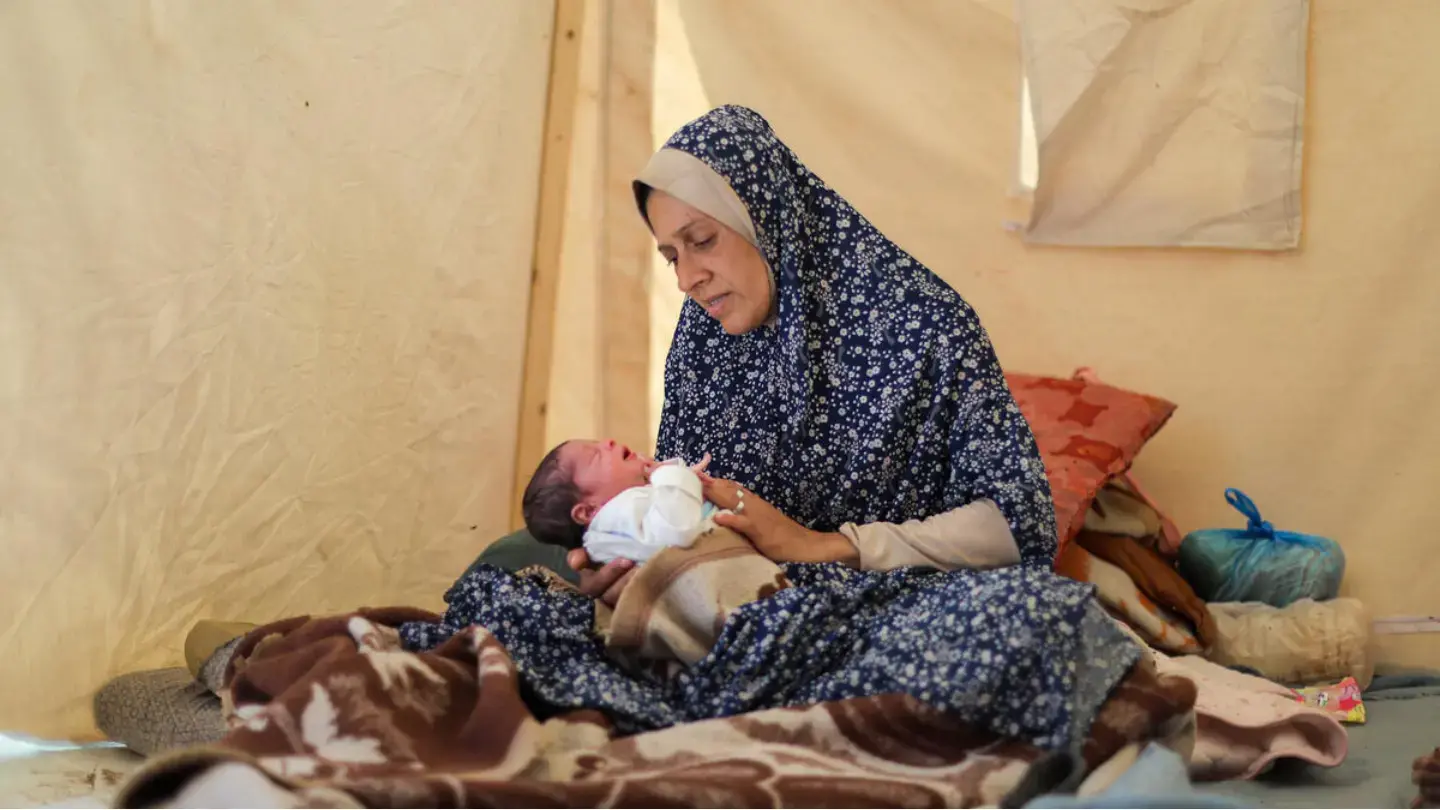WORKING GROUP III: Early Recovery Priorities. Keynote by UNFPA Executive Director Dr. Natalia Kanem.
Mr. Prime Minister,
Excellencies, distinguished guests, dear colleagues
I greet you in Peace – what the people of Gaza, this region and the world so desperately need, is Peace.
It’s very difficult to talk about ‘early recovery,’ given the calamitous humanitarian situation in Gaza today. First, there has to be an immediate ceasefire, as the UN Security Council called for yesterday, and then, a massive humanitarian operation with safe and unimpeded access to all the people in need – especially women and girls.
When the bombs stop – and they must stop with all haste – to rethink and significantly adapt how we reach the most vulnerable in Gaza, early recovery will have to be grounded in international humanitarian law and human rights; Palestinian-owned, gender-responsive, and built ground-up through community engagement and social cohesion. Pregnancy is a sacred period — and the egregious violation against maternity hospitals and fertility centers must be confronted and condemned.
With urgency, UNFPA proposes three calls to action:
First, prioritize women and young people, and meaningfully and actively engage them at every stage of the recovery process. They have the right to shape their future and that of their country. This is essential for their well-being and for the holistic recovery and rebuilding of communities. Young people are the treasure of Palestine. Therefore, plan to mobilize them fully in the recovery process, which in itself will benefit society while being a form of healing for the young people involved.
Second, prioritize mental health and psychosocial support – especially for gender-based violence survivors. Once the guns are silenced, the trauma that all Gazans are suffering will have to be addressed. UNFPA focused on survivors of sexual and gender-based violence, as lead coordinating agency for GBV prevention and response. Let’s also care for the carers. We could not provide our lifesaving services without the partnership of nurses and midwives and the local women-led organizations. Right now, these heroic organizations are at the breaking point. They deserve our full collective support. UNFPA will lend its expertise in the psychosocial arena.
My final call is for resources commensurate to the massive requirements: Assure funding for women’s and girls’ protection, education, economic empowerment and healthcare – especially sexual and reproductive health care — and ensure restitution of the maternity wards, so our very dedicated midwives who we have invested in for years can do their work. Invest in local capacities, particularly in the women’s organizations who will lead local recovery efforts that are community-driven and sustainable.
Now, picture Misk and Layan — two beautiful baby girls born against all odds in a camp in al-Mawasi, as bombs and missiles rained down. The camp is supported by the Culture and Free Thought Association, a phenomenal women-led organization that partners with UNFPA to provide sexual and reproductive health services and temporary spaces of respite for women and girls — although nowhere in Gaza is safe.
Now, imagine Baby Misk and Baby Layan in 10 years’ time. What is the Gaza, the Palestine, that they will inherit? Will they live free from violence and conflict? Will they be able to complete their education and navigate the path from adolescence to adulthood in good health, with anticipation and without fear? All that depends on the commitments we make today. It depends on the investments we make in their future, towards a peaceful, prosperous and sustainable Gaza.
You can count on UNFPA’s full support in that effort. Thank you.




